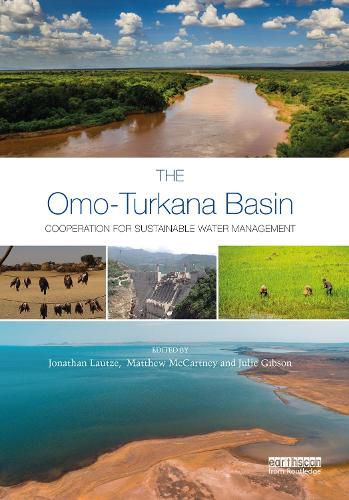Readings Newsletter
Become a Readings Member to make your shopping experience even easier.
Sign in or sign up for free!
You’re not far away from qualifying for FREE standard shipping within Australia
You’ve qualified for FREE standard shipping within Australia
The cart is loading…






This book provides a comprehensive examination of water resource management in the Omo-Turkana Basin, linking together biophysical, socioeconomic, policy, institutional and governance issues in a solutions-oriented manner.
The Omo-Turkana Basin is one of the most important lake basins in Africa, and despite the likely transboundary impacts associated with the management of dams, it is the largest lake basin in Africa without a cooperative water agreement. This volume provides a foundation for integrated decision-making in the management of development in the Lake Turkana Basin. Chapters cover water-related conditions, hydropower, agriculture, ecosystems, resilience and transboundary governance. The final chapter proposes ways forward in light of the potential benefits that can be achieved through cooperation, and practical realities that cooperation is slow and may take time to achieve.
This book will be of great interest to students and scholars of water and natural resource management, environmental policy, sustainable development and African studies. It will also be relevant to water management professionals.
$9.00 standard shipping within Australia
FREE standard shipping within Australia for orders over $100.00
Express & International shipping calculated at checkout
This book provides a comprehensive examination of water resource management in the Omo-Turkana Basin, linking together biophysical, socioeconomic, policy, institutional and governance issues in a solutions-oriented manner.
The Omo-Turkana Basin is one of the most important lake basins in Africa, and despite the likely transboundary impacts associated with the management of dams, it is the largest lake basin in Africa without a cooperative water agreement. This volume provides a foundation for integrated decision-making in the management of development in the Lake Turkana Basin. Chapters cover water-related conditions, hydropower, agriculture, ecosystems, resilience and transboundary governance. The final chapter proposes ways forward in light of the potential benefits that can be achieved through cooperation, and practical realities that cooperation is slow and may take time to achieve.
This book will be of great interest to students and scholars of water and natural resource management, environmental policy, sustainable development and African studies. It will also be relevant to water management professionals.